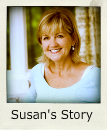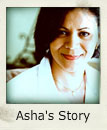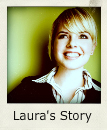 A few months ago, I got fired by a client. I know this happens a lot, but for me it was the first time.
A few months ago, I got fired by a client. I know this happens a lot, but for me it was the first time.
Okay, he didn’t exactly fire me. He stalled me.
He said something like: “I need to postpone our next session for a few months. Hope that’s okay. Sorry for the change. I just feel like I need to make a few decisions.”
I responded that it was more than okay, that I am here to support and celebrate his self-leadership, and if that looks like him leading himself away from coaching, then I applaud that as much as I applaud anyone leading themselves away from any situation that they aren’t convinced is in their own best interest.
As a champion of self-leadership, I could hardly blame the client for making this decision. He was exercising his own self-leadership in ending (or pausing) this relationship; and since I profess that one of my own goals with each client is to “work myself out of a job,” he was actually doing exactly what my efforts are designed to accomplish.
So why didn’t I respond to his declaration with a round of applause? Why wasn’t his decision immediately followed by me jumping up to offer him a fist bump? What was holding me back?
Here’s the (other) truth, people:
I’m just not that good.
I mean, seriously. The reasons he had picked the 5 session package rather than the 3 session package still existed, and just because we feel excited and like momentum is growing on our path to self-leadership doesn’t necessarily mean we are ready to throw off the training wheels.
It was too soon. There was still a lot to sort through, and he was telling me this at the end of the third of 5 sessions. We had already done a decent amount of clarifying work and gotten started on quite a few goals; enough to feel like a substantial amount of progress had indeed been made.
The giddiness of initial success inevitably gives way to the nitty-gritty of real change, and that’s when you need a support system and a plan more than ever. I’ve been in this business a long time, and I love the first blush of transformation as much as anyone, but I’m also seasoned enough to know that there is more to growth than a good track record.
Setbacks are not simply an unavoidable part of the process.
They are essential to it.
So, I said that I respected his decision, and that his two sessions would remain “banked” until he decided he wanted to use them.
What I thought was: “Big mistake. Huge. But, yours to make.”
What I also thought, but didn’t say out loud, was “Hmmm. Interesting choice of words….that you ‘need to make a few decisions.’ Typically, people hire me to help them make decisions.”
This was a clear indication of a problem.
And, it wasn’t the first sign that our relationship had some deeper inconsistencies. Upon further reflection, I concluded that there are quite a few things I would have done differently with this client from the beginning, and that I will do differently with clients in the future. I’ll tell you about those specific things next week.
For now, I want to state for the record that it’s typical to have some regrets about choices made in the midst of sessions–information I didn’t follow up on, questions I didn’t ask. But I’ve come to accept that this situation was symptomatic of something deeper in my moxy— my pattern of making assumptions in relationships, pretty much right from the start. I’m still examining why I made the choices I did, and I’ll talk more about that next week as I continue to extract the learning from this experience. But I can assure you that I am already acting on some of the realizations I’ve had about ways I failed this client, and possibly others.
All relationships are mirrors, and we lead ourselves best when we look ourselves in the face and act on what we see.
Once we do that, we become increasingly self aware and powerful. Start examining your own assumptions, and watch what happens next.











Leave a Reply